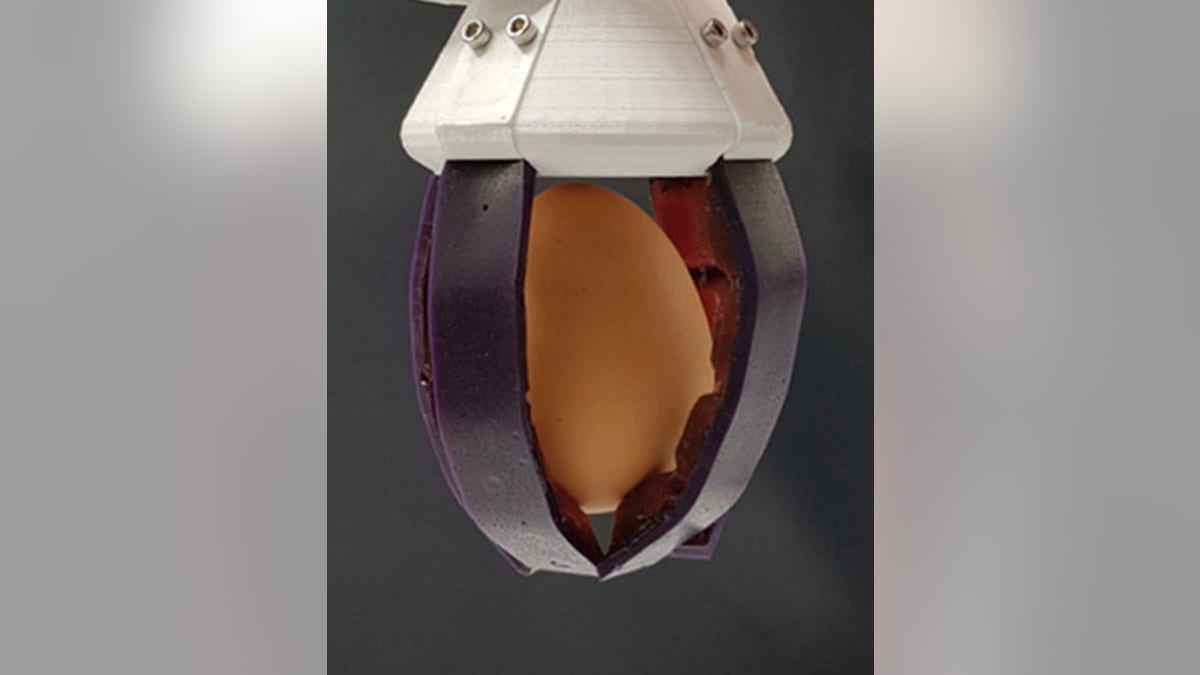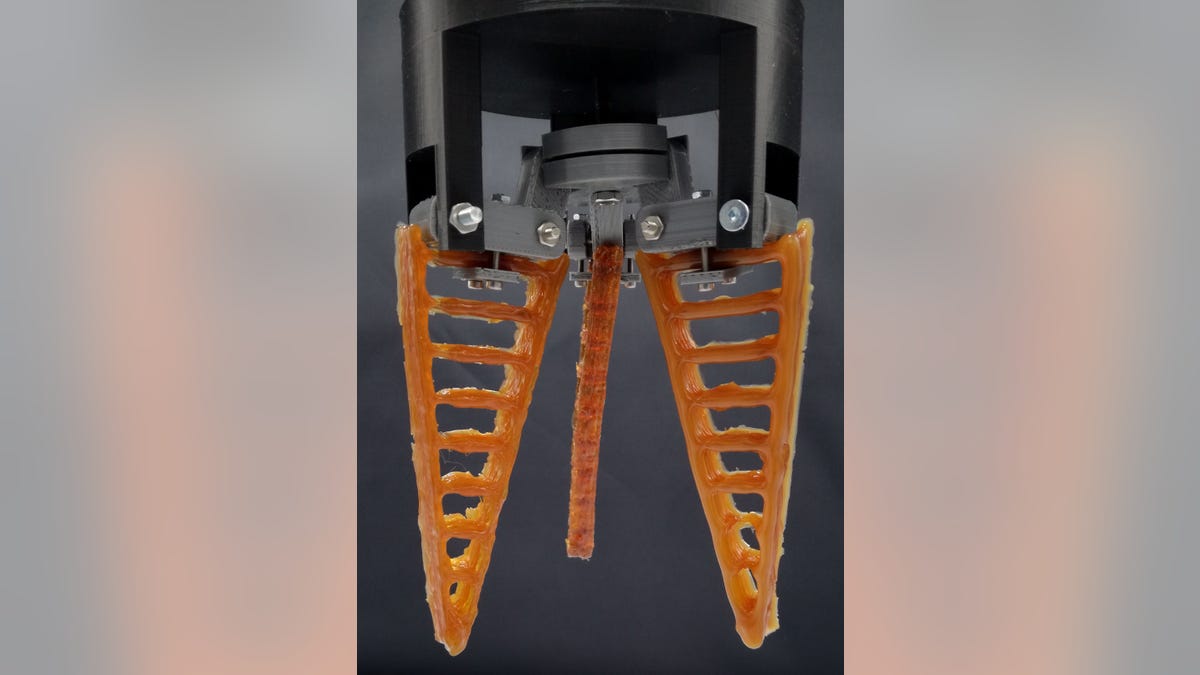Fox News Flash top headlines for August 8
Fox News Flash top headlines for August 8 are here. Check out what's clicking on Foxnews.com
The much heralded robot apocalypse -- which may be many decades away -- is predicated on the notion that robots will eventually be able to handle tasks that require a deft, softer touch.
That includes things like minor surgeries and picking fruit, which require soft hands to handle delicate tasks. The problem is, robotic hands that are made of softer substances are also more prone to being damaged.
A European Commission project being led by scientists in Belgium and the United Kingdom wants to build "self-healing" robots that can feel pain or sense damage before quickly repairing themselves without any help from us humans.
MICROSOFT CONTRACTORS ARE LISTENING TO YOUR INTIMATE CONVERSATIONS ON SKYPE: REPORT

A gripper consisting of two different self-healing materials holding an egg. (Bran Vanderborght (Robotics))
The researchers have developed polymers that can create new bonds after about 40 minutes, according to The Guardian, and they want to embed sensor fibers into the polymer that can figure out where damage is located.
Bram Vanderborght, from the University of Brussels, said this type of research is at the forefront of innovation in robotics.
"Over the past few years, we have already taken the first steps in creating self-healing materials for robots. With this research we want to continue and, above all, ensure that robots that are used in our working environment are safer, but also more sustainable. Due to the self-repair mechanism of this new kind of robot, complex, costly repairs may be a thing of the past," Vanderborght said in a press release.
SELFIES COULD MEASURE YOUR BLOOD PRESSURE, SCIENTISTS DISCOVER

A 3-D printed self-healing gripper (Bram Vanderborght, Robotics)
Thomas George Thuruthel, also from the University of Cambridge's Department of Engineering, said these types of self-healing materials could have future applications in modular robotics, educational robotics and evolutionary robotics where a single robot can be "recycled" to generate a fresh prototype.
Although the advances in this type of robotics could greatly benefit the medical field, there are fears that countless jobs in other industries will be eliminated once robots become more widely used across a range of industries.









































